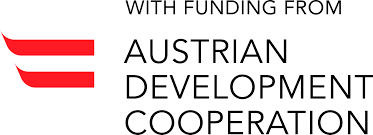Dear Members, Colleagues, Friends, Companions,
It is a great honor for me to be the Chairman of the Board of the Georgian Association of Social Workers. First of all, I would like to thank the board of the association for this confidence. On the other hand, this is a very big responsibility that I want to fulfill. I applaud the team that my predecessor made with so much efforts and laboring. I hope that with them, in close cooperation with the Association's Director and the Board, I will be able to handle this difficult task.
Social work, as a profession, is developing in Georgia and therefore it will more or less deal with the social challenges that existed in the country at that time. However, what was considered as a success yesterday is not enough today and we need more to become a modern and effective profession. In modernity and efficiency, I mean a science-based profession that can develop evidence-based interventions and create social innovations for the benefit of the country.
As you know, the mission of the association is to promote the development of the social work profession and practice. As part of this mission, the main focus of my work will be to develop the scientific foundations of social work. Social work is an applied science, which is a transdisciplinary and interdisciplinary field of social science. The transdisciplinarity of social work is especially interesting, which involves the collaboration of the theorists and practitioners of social work. Without this cooperation, it would be impossible to solve complex social problems. Indeed, it is impossible to achieve social progress without practicing social workers in the field and directly in touch with beneficiaries. Moreover, introducing the research methods of social work, such as collaborative researches, action (practice) researches will bring us closer to our beneficiaries and will show us the essence of the problem and the ways how to solve. A beneficiary, a practitioner and a scientist-theorist are the cornerstone that must be able to deal with complex social problems through proper identification, development and implementation of social problems. Beneficiary-oriented services can be introduced through the development of evidence-based practice.
Social work is interdisciplinary. We use the best theories from psychology, sociology, economics, education and synthesize these theories to create new theories, approaches, models that create knowledge of social work. It is not just unification, but a test of these theories in practice, tailored to specific beneficiaries and the creation of new knowledge, called Specific Knowledge of social Work. It will be possible to solve complex and critical social problems with knowledge of social work.
Social work as a profession is immanently characterized by the approaches that make this field of science special and prioritizing over other fields. There are professional goals, ethical values and systemic vision of social work that form the basis for achieving a social change and a social justice.
Today we experience a lack of knowledge of social work, we do not have evidence-based services. We seem to rummaging hands, but we have nothing in our hands. . . The main goal of the association will be to create knowledge of social work together with practitioners, beneficiaries and scientists.
International experience, especially the history of social work development in the United States, shows that social work cannot be developed without its scientific basis. Social work should be duly integrated into the family of science disciplines, empowered with more knowledge and education and become more competitive in both social research and social policy development. At the center of this science is the beneficiary, whom the social work profession sees better with its systematic approaches and value attitude. Social progress can only be achieved through science.
Today, we face three major challenges:
- Strengthen social science and base of knowledge;
- Collaborate with beneficiaries, practitioners, students, professionals in different fields, scientists, local and international universities, various governmental and non-governmental community organizations to achieve a social progress;
- Work together to tackle complex social problems, such as: violence, injustice, inequality, poverty, economic poverty, homelessness, being in conflict with the law, social isolation, drug addiction, HIV/AIDS, forced displacement… to achieve the well-being of individuals and families and to create a justice and equal society.
Success depends on us. I hope that I will be able to deal with these challenges with you!
Best wishes,
Shorena Sadzaglishvili
Chairman of the Association of Social Workers of Georgia





